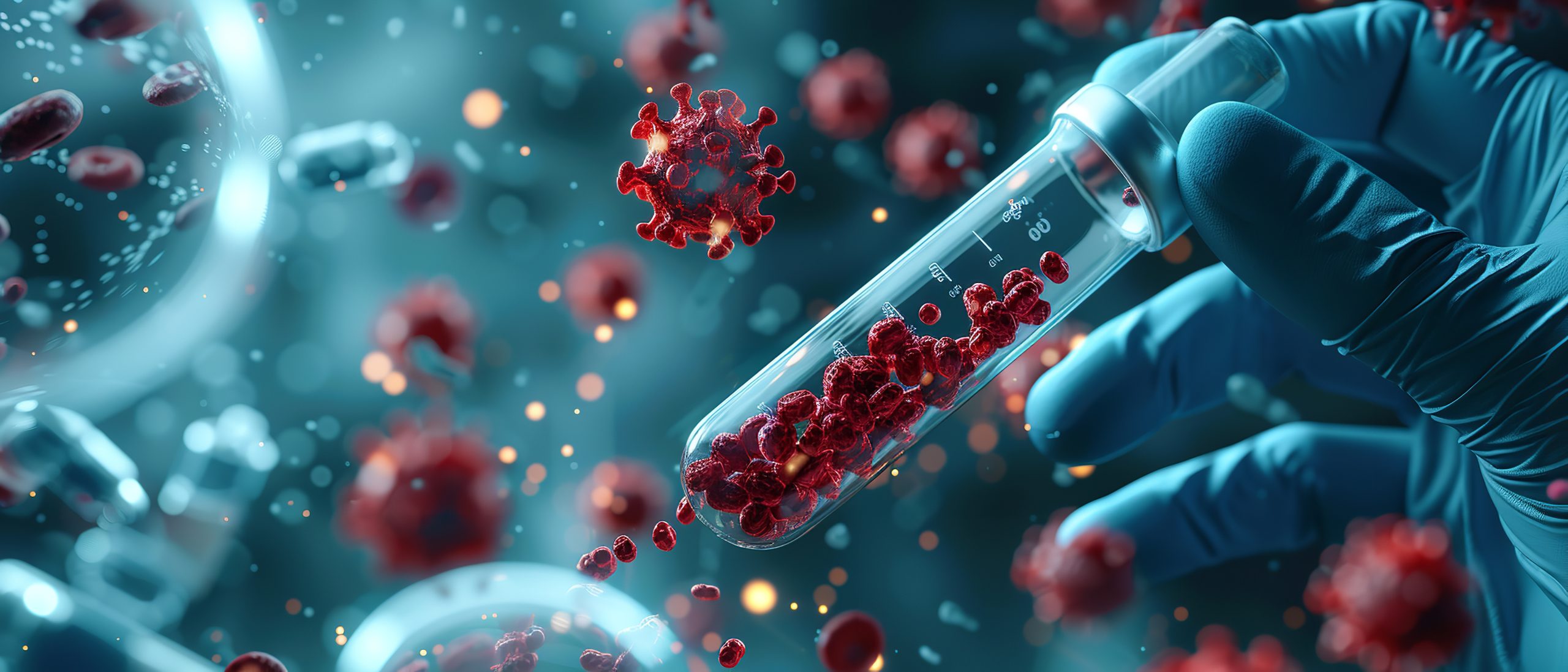
Diving into Chronic Lymphocytic Leukemia (CLL) & Treatment
Do you want to know what Chronic Lymphocytic Leukemia, known as CLL is? Well, CLL is considered the most common form of leukemia that mostly occurs in adults. It is considered a type of cancer that highly affects the lymphocytes or white blood cells. It mainly accumulates in the bone marrow or blood, leading to different symptoms.
If we could say that Chronic Lymphocytic Leukemia is a slow-growing cancer then, it wouldn’t be wrong. It slowly and gradually affects the whole immune system of the human body and causes a lot of complications. In the article below, we will discuss everything about CLL. We will also target how to treat chronic lymphocytic leukemia and different common treatments that can be considered for this condition.
What is Chronic Lymphocytic Leukemia?
Chronic Lymphocytic Leukemia or a CLL, is a type of leukemia that mostly occurs due to the abnormal accumulation of lymphocytes in the blood. The accumulation of lymphocytes in blood, bone marrow, or lymph nodes led up to the condition known as Chronic Lymphocytic Leukemia.
This condition of accumulation of cells is a slow-growing disease and does not cause any major symptoms for years. However, it is important to know that at the progression stages the disease can cause many complications such as anemia, bleeding, or infections.
What Are The Types of Chronic Lymphocytic Leukemia?
There are different types of chronic lymphocytic leukemia. It is mainly divided into two main types:
- The very first is chronic lymphocytic leukemia, also known as CLL. It is the first and most common type of CLL and occurs by the gradual accumulation of mature B lymphocytes in the blood or bone marrow.
- Another type is T cell PLL. It mainly affects the T lymphocyte nodes, which is responsible for the white blood cell coordination with the immune system response against infections or abnormal cells. Moreover, T cell PLL mostly show symptoms quickly as compared with people with B cell CLL.
What Are The Causes of Chronic Lymphocytic Leukemia?
According to research, it usually occurs in individuals who have gone through the chromosomal or Gene mutation in their lifetime. Additionally, there are different factors that also contribute a lot to the development of Chronic Lymphocytic leukemia. Below, we have mentioned certain factors:
- The very first is Age. On average, adults over the age of 60, or nearly 70, are diagnosed with Chronic Lymphocytic Leukemia.
- Family history also contributes a lot. The individuals who have a close family history of Chronic Lymphocytic Leukemia Development in their biological parents, siblings, or children are more likely to develop CLL.
- Sexuality also contributes. According to research, men are more likely to develop CLL in comparison to women at birth.
- The exposure to Agent Orange also led to the development of Chronic Lymphocytic Leukemia. Agent Orange is a chemical that was previously used, especially during the Vietnam War.
What Are The Symptoms of Chronic Lymphocytic Leukemia?
There are different symptoms that you can find at the progression stages. It is important to know that CLL often does not cause any major symptoms in the early initial phases. However, it shows up as the disease progresses into the oldest stage. It might take months before showing any symptoms.
However, there are some common symptoms that you should know. Below, we have mentioned that all.
- Fatigue
- Weight loss
- Swollen lymph nodes
- Frequent infections
- Easy bleeding or bruising
- Night sweats
- Fever
How to Diagnose Chronic Lymphocytic Leukemia?
- The diagnosis procedure of CLL is quite simple. It typically involves a physical examination, blood test, or bone marrow biopsy. By conducting the blood test, you can help identify the abnormality in the lymphocyte B. Additionally, you can also detect the stage of the disease.
- Moreover, conducting the blood test will also help you get the complete blood count of your RBC and WBC. This helps you understand how much haemoglobin your red cells have as it holds great importance.
- You can also consider a pathologist who can help you examine your blood through microscopic activity.
- Bone marrow biopsy is another way to diagnose, it is mainly performed to consider and confirm the extent of the disease
- Last but not least is the genetic test. These genetic tests include fluorescent in situ hybridization, often known as FISH. It plays a crucial role and helps in understanding the chromosomal and gene mutation activity.
What Chronic Lymphocytic Leukemia Treatments are Available?
Treatment for Chronic Lymphocytic disease completely varies and depends on the type and the stage of the disease the patient is standing on. However, it is important to know that in some cases, the only way to treat Chronic Lymphocytic Leukemia is to observe and keep the individual under the monitoring.
However, if your disease has progressed then the treatment may become the necessary expectation yet there are different common treatment options available nowadays. Below we have mentioned all the common treatment options.
Common Treatment Options for CLL Include
- The very first is observation and monitoring. Regular monitoring and blood tests during physical examination will help a lot in keeping the disease under control and reducing the risk of progression.
- Chemotherapy is another major option that needs to be considered. Chemotherapy uses the drugs that help kill the cancer cells in the blood.
- Target therapy is also a popular treatment used for Chronic Lymphocytic leukemia. It mainly targets the specific molecules that are most involved in the survival of cancer cells. There are many popular target therapy drugs available in the market. However, the most common and effective ones are ibrutinib and acalabrutinib.
- Immunotherapy can also be considered to treat Chronic Lymphocytic Leukemia, protecting your immune system and assisting your system in fighting the cancer cells. Thus, Immunotherapy is like a simulating therapy.
- Last but not least, treatment that you can consider for Chronic Lymphocytic Leukemia is stem cell transplant. This includes the replacement of the damaged bone marrow with healthy stem cells.
Ibrutinib and Acalabrutinib The Target Therapy to Treat Chronic Lymphocytic Leukemia
There are the two major target therapy drugs that are considered as an approved treatment for CLL. These drug target therapy includes Ibrutinib and Acalabrutinib. Ibrutinib known as Imbruvica & Acalabrutinib known as Calquence. However, Calquence cost is more budget friendly if we compare to Ibrutinib. These two drug therapies respectively are considered highly effective treatments as they work by blocking a protein called Bruton’s tyrosine kinase of BTK. The blockage works greatly as it involves the survival of CLL cell growth in your body.
Well, Calquence may be the best option for CLL patients who are struggling with the high cost of Ibrutinib. However, the price of ibrutinib and calquence depends widely on several factors. These factors vary from insurance coverage to pharmacy and location to the brand you consider. Yet there are nowadays different generic versions of medicines available in the market as well.
These generic medicines are highly effective and are also known as affordable solutions. However, it is important to remember that before taking any medicine always consult your health professional or consultant.
Conclusion
Overall, we have discussed all the basic details about Chronic Lymphocytic Leukemia and how Chronic Lymphocytic Leukemia is treated, the different types of Chronic Lymphocytic Leukemia, and the symptoms that can be caused due to this disease. However, there are different effective solutions available to treat Chronic Lymphocytic. So, if you are also one of those who have been diagnosed, then there is no need to worry about it as now a professional treatment is available. All you need is to consult your healthcare provider.









